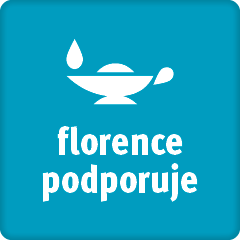


Číslo 1 - 2 / 2015
Cleaning children's teeth

You should start brushing your children's teeth as soon as the first milk tooth breaks through, usually at around eight months. It is recommended that you use a very soft toothbrush or a piece of damp gauze, which delicately cleans the tooth surface. The teeth should be cleaned every day in the evening after the last drink or food. When the first molar tooth appears, it is necessary to start using a toothbrush, as gauze is no longer enough to clean the surface of a molar. It is ideal to start using a toothbrush and toothpaste to clean the child's teeth at around the age of two.
Mother: Good morning, nurse. I would like to ask you a few questions regarding children's tooth brushing. My son is turning two and I've heard that from the age of two, I should brush his teeth with a toothbrush and toothpaste. So I wanted to ask what kind of toothbrush I should use and how I should clean his teeth.
Nurse: Good morning, Ms Doolittle. You are right. Toothbrushes designed for children have a small head and soft bristles. The toothbrush should be kept in a place where the bristles can easily dry out and you should change it as soon as the bristles spread out or after the child has been ill.
Mother: I see. And what about the toothpaste?
Nurse: Use fluoride toothpaste suitable for children under three. The amount of the toothpaste should roughly correspond to the size of a pea. Children’s teeth should be cleaned at least twice a day, particularly in the morning, after breakfast, and in the evening, just before bedtime.
Mother: How long should it take and how should the teeth be brushed?
Nurse: It is recommended to brush the teeth for 2-3 minutes. The simplest way to clean toddlers' and preschool children's teeth is to clean the chewing surfaces of the molars from the front to the back and to clean the rest of the teeth surfaces with gentle circular movements.
Mother: Ok. But what if he dislikes brushing teeth?
Nurse: Motivation is the key with children. Try buying a toothbrush with a nice picture on it or toothpaste with his favourite character. It is also very important to supervise young children. If you'd like, I can make you an appointment with our dental hygienist who will explain everything to you once more in a greater detail.
Mother: All right, that would be very kind of you. Thank you.
|
to break through |
prořezat se, proniknout, prorazit, prolomit |
|
damp |
vlhký, mokrý |
|
gauze |
gáza, mul |
|
molar |
stolička |
|
he is turning two |
budou mu dva (roky) |
|
bristle |
vlas, štětina (kartáče) |
|
spread out |
roztřepit se; roztáhnout, rozvinout, rozevřít; rozprostírat se |
|
pea |
hrách, hrášek |
|
toddler |
batole |
|
chewing surfaces |
žvýkací plochy |
|
dislikes |
nemít rád, nelíbit se |
|
character |
postava, hrdina; charakter, povaha |
|
supervise |
dohlížet, hlídat, mít dozor |
|
it’s very kind of you |
to je od vás milé, hezké; to jste hodný/á |
Lekce angličtiny pro časopis Florence připravuje překladatelská agentura ACP TRADUCTERA (www.traductera.com).
Ilustrační foto, zdroj: whttp://www.ordinace.cz
Další články v tomto čísle
- Nechť souhlasí řeč se životem
- Novoroční přání hlavní sestry ČR
- Při práci na oddělení pro královskou rodinu jsem se sama cítila jako princezna
- Péče o pacienta po stomatochirurgickém výkonu
- Zdravý a krásný úsměv – jak ho dosáhnout?
- Důležitost péče o dutinu ústní
- Problematika výuky chronických ran v oboru všeobecná sestra
- Psychické a fyzické faktory v profesi sestry v domácí péči
- Následky a zvládání kyberšikany
- Práce sestry v zubní ordinaci





















